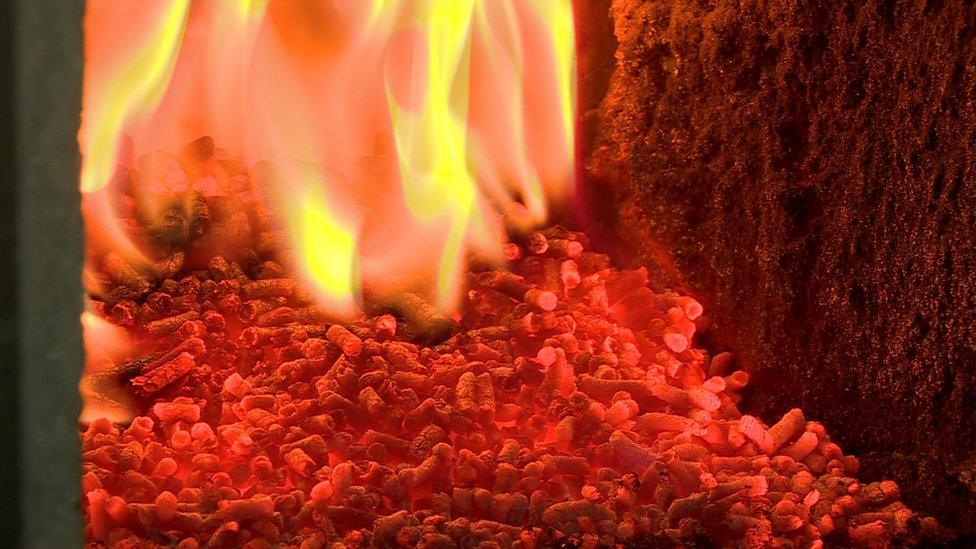RHI Inquiry: Five moments you might have missed
- Published
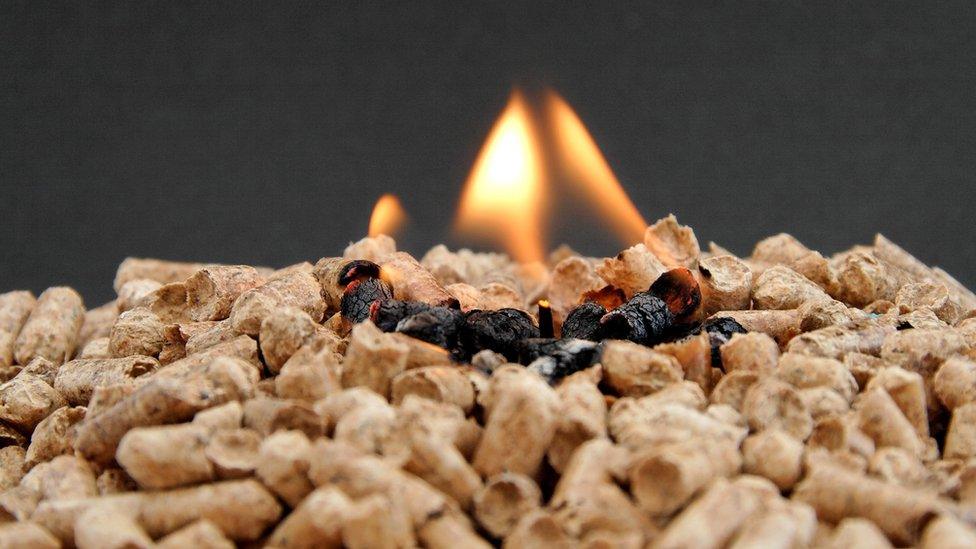
The scheme encouraged businesses to switch from fossil fuels to renewable heat
Days 104 to 107 of the public inquiry into Northern Ireland's flawed green energy scheme marked the penultimate week of hearings.
It is examining what went wrong with the Renewable Heat Incentive (RHI) scheme.
It was set up in 2012 to encourage uptake of eco-friendly heat systems - but large subsidies left NI taxpayers with a £490m bill
BBC News NI picked out five key bits you may have missed over the past week.

1. Farmers 'unlikely to raise overpayment concerns' - Donal Lunny
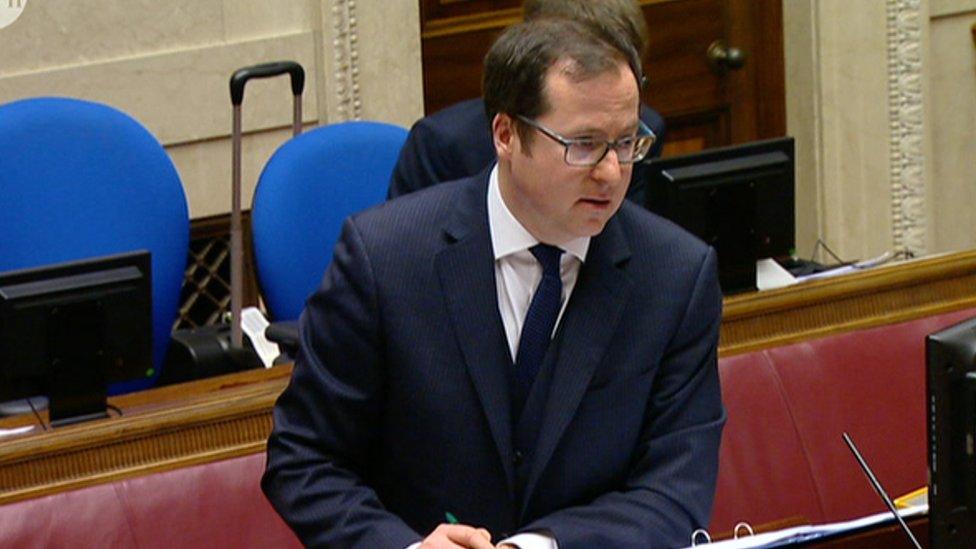
Donal Lunny is one of the inquiry's junior counsel
On Tuesday, evidence kicked off with an appearance from a senior Ulster Farmers' Union (UFU) official - it's the biggest agricultural union in Northern Ireland.
Many of its members were claimants on the RHI scheme.
It did not take long before UFU policy officer Chris Osborne admitted farmers were unlikely to contact the union with concerns about lucrative payments on the RHI scheme.
Mr Osborne conceded that from an early stage, he understood the RHI tariff was higher than the cost of renewable fuel.
He said there had been a slow uptake of the incentive and it had been under budget for the first couple of years.
He said the UFU was not receiving feedback from the enterprise department, which ran the scheme, or from farmer claimants "on the ground" about the high rate of return.
That led inquiry counsel Donal Lunny to remark: "But would you really expect farmers to contact you to say this scheme is overly generous?
"I am being paid more than I think should be, I am being over-incentivised, I am concerned that might harm the long-term viability of this market. Is that really a realistic concern that you would have had?"

2. Emails were 'of type' leaked to media - Donal Lunny
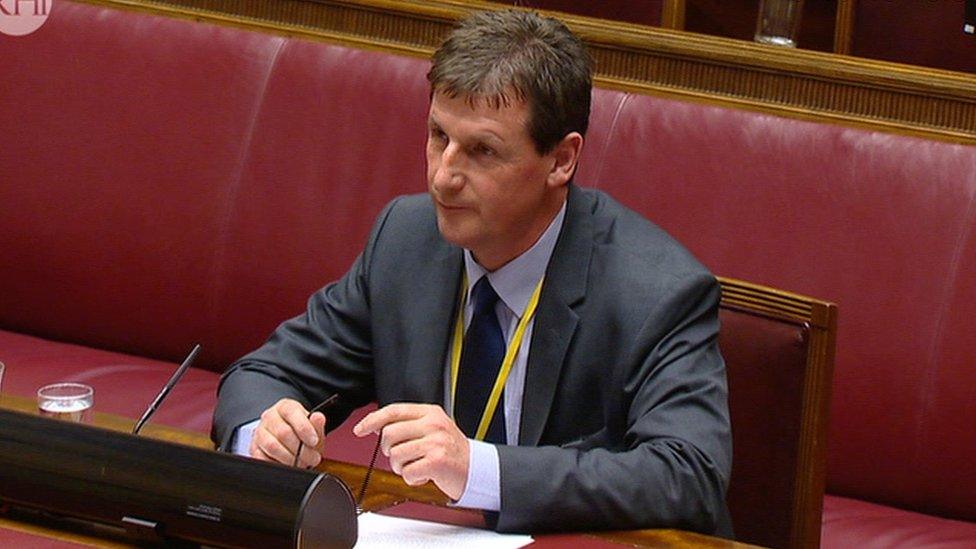
Wesley Aston is the chief executive of the Ulster Farmers' Union
On Tuesday afternoon, another top-level UFU official took the oath - Wesley Aston is the organisation's chief executive.
Some significant revelations emerged during his evidence, as the inquiry was told emails sent by Mr Aston to a DUP adviser and circulated within the party were of a type leaked to the media at the height of the political storm over RHI.
In January 2017, Mr Aston forwarded emails about the scheme to ex-DUP adviser Andrew Crawford, who would resign within weeks over claims he was involved in delaying cost controls to the scheme.
The emails showed the level of contact there had been in summer 2015 between Chris Osborne and Stormont civil servants about the plan to cut lucrative RHI subsidies.
Mr Lunny asked if Mr Aston thought the DUP might use the emails to "shift the focus" from Mr Crawford on to the department, but he said it did not occur to him at the time.
The inquiry's barrister said the emails were "of a type" subsequently leaked to several media outlets, including the BBC and the News Letter.

3. 'Total lack of communication' about RHI - Sir Patrick Coghlin
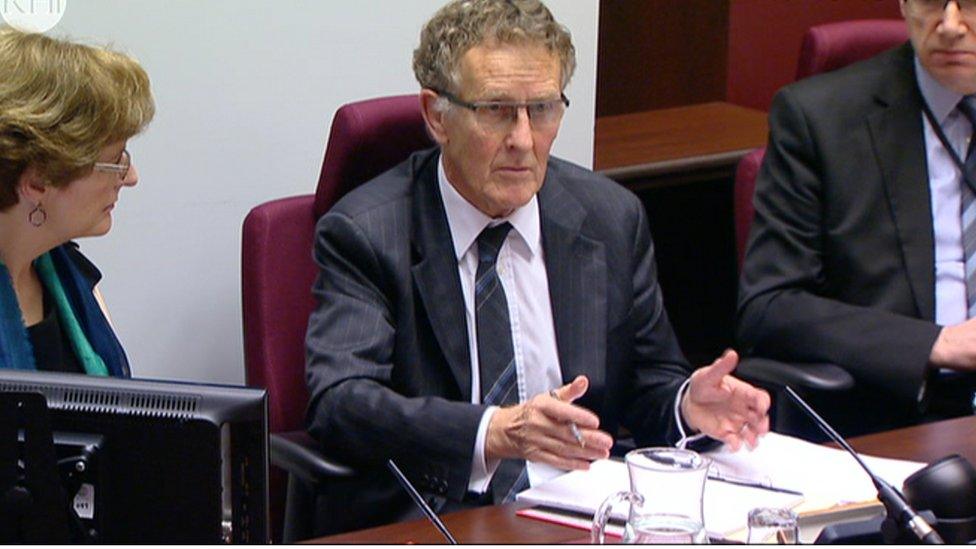
Sir Patrick Coghlin is a retired Court of Appeal judge, and sits with two other panel members to hear the inquiry's evidence
On Wednesday, senior Stormont official Trevor Cooper was back at the inquiry to finish his evidence.
He was head of the enterprise department's finance division, which scrutinised and approved the RHI scheme.
He gave details about the difference in views between the enterprise department's energy and finance divisions about the scheme
A very exasperated inquiry chair, Sir Patrick Coghlin, remarked that there seemed to have been a "total lack of communication" between officials.
Sir Patrick described it as "such dysfunction" and said the panel had "major difficulties" in understanding" how the department worked.
He said finance branch officials did not seem to have looked at the scheme's regulations to gain a proper understanding of how it worked.
Mr Cooper replied that he could not "disagree with that".
On Wednesday, it also emerged the Charity Commission has re-opened an investigation into an energy charity with links to the RHI scheme.

4. Civil servants 'failed' over green scheme - Sir Patrick Coghlin
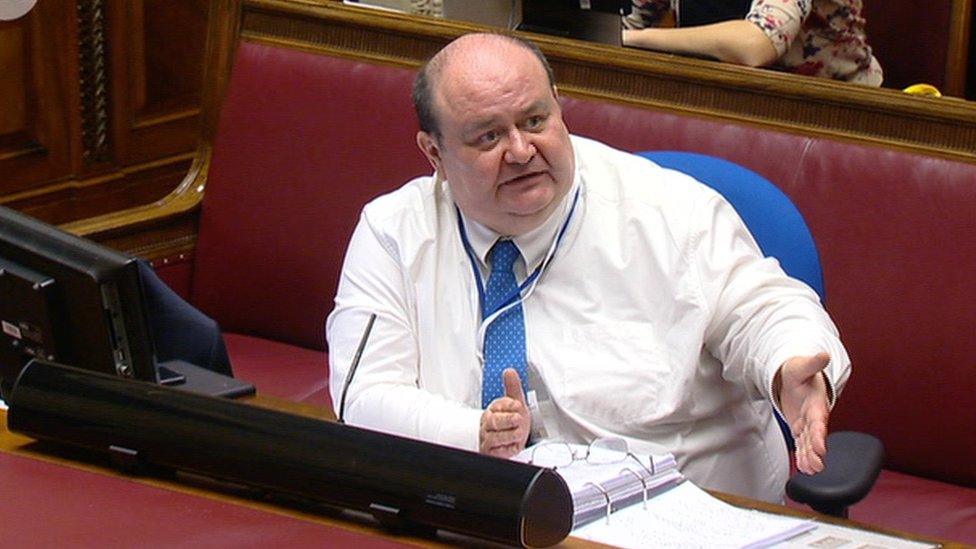
Trevor Cooper was head of finance at the enterprise department, which scrutinised and approved the RHI scheme
On Thursday, Trevor Cooper returned to the witness seat a final time.
It wasn't what he said that raised eyebrows - but a comment from Sir Patrick, who is known for not holding back when the right occasion strikes.
He said Stormont civil servants failed to ensure adequate checks were done to guarantee there were controls on payments under the RHI scheme.
Sir Patrick said a team that signed off the RHI scheme in 2011 took a colleague's word for it, that the money could be stopped if it went over budget.
He said that shouldn't have been enough to satisfy the scrutiny committee in the enterprise department, which set up RHI and gave it the go-ahead.
Sir Patrick said it should also not have gotten through the finance department, which had to give ultimate approval for the scheme's budget.
The inquiry has heard a lot of evidence about how the RHI scheme got through the approval process, and how officials didn't always carry out their duties fully when it came to scrutinising regulations.

5. RHI audit found 'worst ever' flaws - Michael Woods
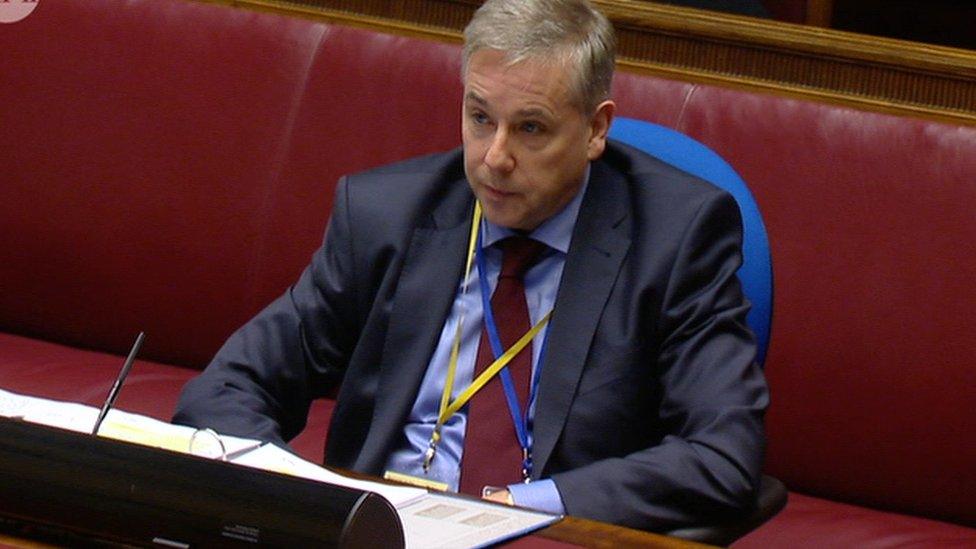
Michael Woods is the head of internal audit in the department that set up the ill-fated RHI scheme
On Friday, day 107 kicked off with some pretty shocking evidence from a top Stormont auditor.
Michael Woods, who was head of internal audit in the enterprise department, said of the 500 reports he'd carried out in his career - the investigation into the RHI scheme found the most serious flaws.
He said his report in 2016 showed there was "just no control here" and that he could not recall any scheme where the system of oversight had been that bad.
"This is the worst opinion I have ever had to give," he said.
He also told the inquiry that auditors planning to inspect the running of the scheme were not told of the potential risks it posed.
He got an unsatisfactory level of co-operation from officials when he went to do the audit, added Mr Woods.

Tuesday marks the beginning of the final week of oral evidence at the inquiry - with former ministers, the DUP's Simon Hamilton and Sinn Féin's Máirtín Ó Muilleoir, set to appear.
Keep up with the latest from the RHI inquiry on BBC News NI and on the live page.
- Published5 September 2018
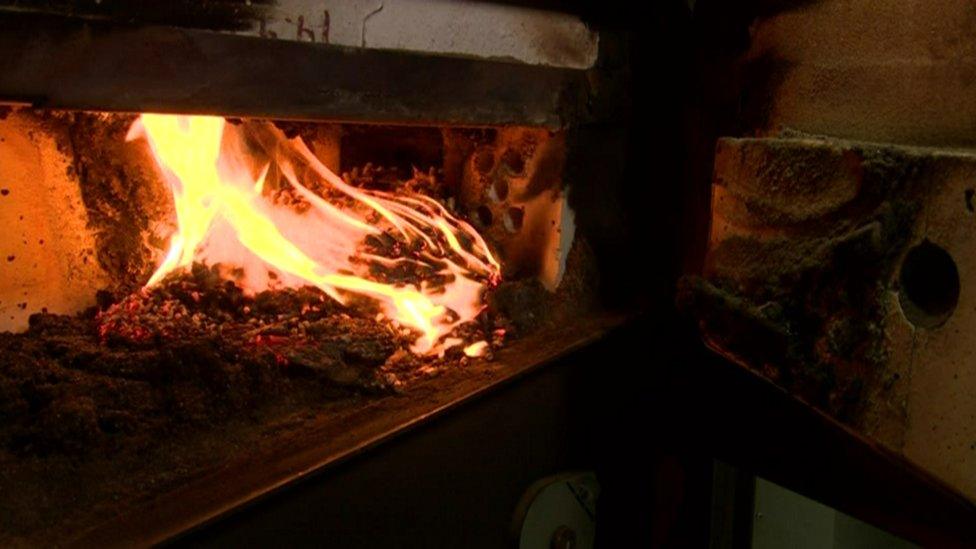
- Published7 November 2017

- Published23 October 2019

- Published13 March 2020
